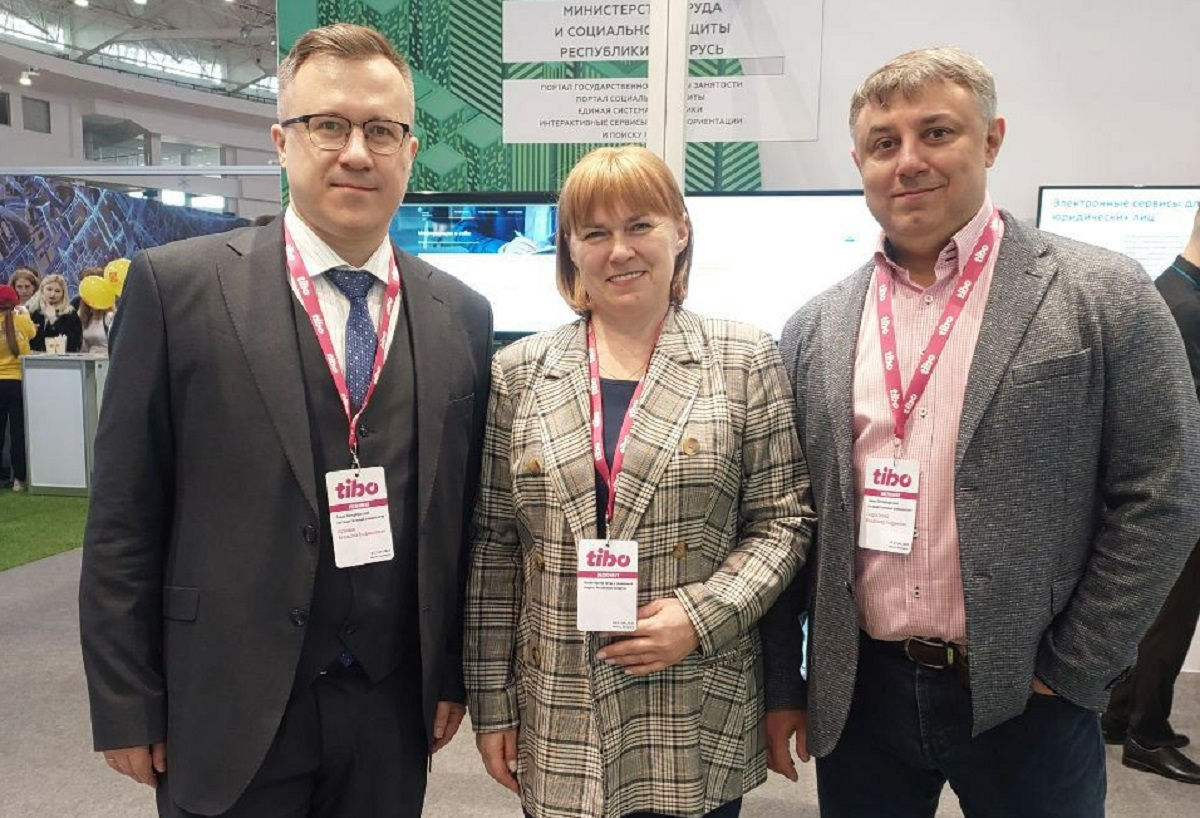Vladislav Arkhipov at the TIBO-2023 forum: St Petersburg University research into legal regulation of artificial intelligence

Minsk has hosted the international TIBO 2023 forum. It is the largest event in the field of information and communication technologies in the Republic of Belarus, where experts from different countries discuss global trends in the development of information technologies and share their experience in digital transformation, including in the field of education.
The delegation from St Petersburg University took part in the business programme of the forum. Among the representatives of the University were the following: Vladimir Starostenko, Vice-Rector for Digital Transformation and Information Security; Anastasiia Kovalchuk, Head of the Digital Transformation Project Office, Director of the Centre of E-Learning Development; and Vladislav Arkhipov, Professor at St Petersburg University, Head of the Department of Theory and History of State and Law, Director of the Centre for Research on Information Security and Digital Transformation at St Petersburg University.
At the forum, Vladislav Arkhipov made a presentation "Generative artificial intelligence: digital transformation of social reality and new challenges of information security". He described how St Petersburg University is implementing initiatives in the field of digitalisation.

The priority area in the expert activity at the Centre for Research on Information Security and Digital Transformation at St Petersburg University is the development of approaches to legal regulation, general legal assessment and assessment from the point of view of the social significance of generative artificial intelligence. These approaches are neural networks based on machine learning, which are currently being introduced everywhere.
St Petersburg University is expected to launch a new online course "Information Security for Everyone". The author of the course is Vladislav Arkhipov. The course is designed for a wide audience and focus on the traditional technical aspects of information security, the psychology of influence in the digital environment, and the problems associated with the reliability of information.
The main issue to discuss, according to Vladislav Arkhipov, is uncertainty of the legal regimes of information at three legally significant stages of the use of neural networks. Among them are the following: first, selecting material for machine learning; second, using information to generate a result; and, finally, disseminating this result in a variety of areas from generating images to using deepfakes in public meaningful communication. The centre also studies how the idea of traditional spiritual values will affect the acceptable limits for the use of digital technologies.
After the report, the section participants discussed the problems of the approach to using ChatGPT to create texts of student projects. According to the experts, if students in social sciences and humanities are allowed to write papers using neural networks, we will assess their knowledge in the field of computer science, rather than in, for example, knowledge in law. A good text can be created due to the excellent ability to instruct the neural network. This means that we will assess a student’s ability to build algorithms and manage neural networks. Yet, a responsible and mature self-awareness of a specialist in the social and humanitarian field presupposes a high level of language proficiency, and it is therefore this skill that the student must master.

